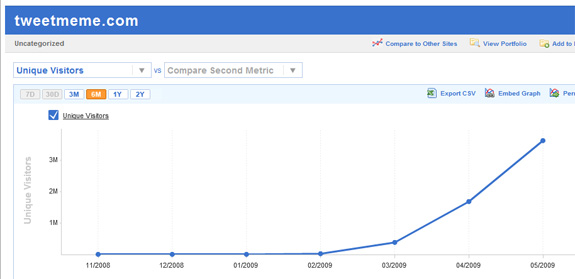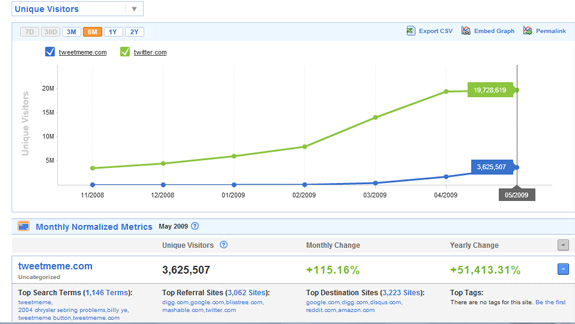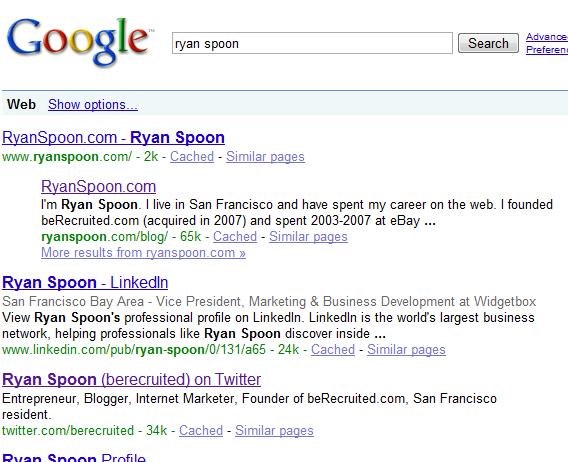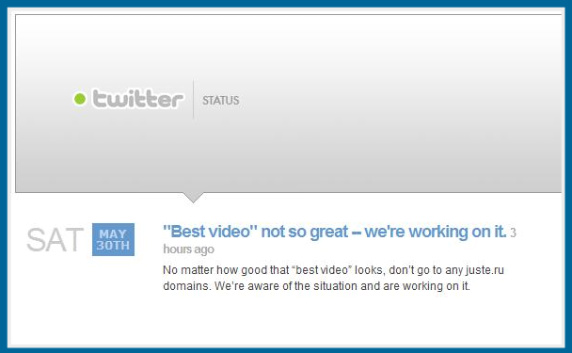Techmeme has become one my primary navigational sources for daily reading / news (others include email, Google RSS, Facebook, NYTimes, TechCrunch, etc). Twitter isn't yet there because it is simply too noisy to be efficient.
Techmeme solves a specific need: revealing quality, trending content across a variety of blogs and news sources. That same need exists on Twitter... and it can be argued it is both a harder AND more important task (after all, there is more noise and less context).
Perhaps that is why Tweetmeme is surging: it solves an important need for an immensely popular service. And as Twitter grows, Tweetmeme becomes even more important, sources more content and services a larger community. According to Compete, Tweetmeme now reaches 3.6m monthly uniques - a hefty number by any measurement. Equally impressive though is that Tweetmeme's reach represents nearly 20% of Twitter's monthly uniques (19.7m). Furthermore, as Twitter's growth flattened from April to May, Tweetmeme's more than doubled (1.6m to 3.6m):

Is this to say that Tweetmeme is the perfect service? No.
It is important however because it demonstrates: - a glaring need / opportunity within Twitter (either for third parties or Twitter itself) - the difficulty that finding poses (both algorithmic search and social search)... particularly in Twitter's dynamic world of 140 characters - a clear demand from users (after all, Tweetmeme's monthly uniques are 20% of Twitter's!) - a threat for sites like Digg and Stumbleupon... which Tweetmeme (or Twitter itself) can effectively compete with - an opportunity for Bit.ly - which is sitting on a goldmine of data surrounding referrals and links








 This is as much about Twitter (and their rise to mass-popularity) as it is about the trend of short URLs. With services like Bit.ly and Tiny URL (which I use all of the time on Facebook and Twitter), it is impossible to know what lies on the click through... and that is dangerous because it requires you to trust the person sending the URL. Or, in today's case, trust that it was intentionally sent by the a trusted person.
This is as much about Twitter (and their rise to mass-popularity) as it is about the trend of short URLs. With services like Bit.ly and Tiny URL (which I use all of the time on Facebook and Twitter), it is impossible to know what lies on the click through... and that is dangerous because it requires you to trust the person sending the URL. Or, in today's case, trust that it was intentionally sent by the a trusted person.